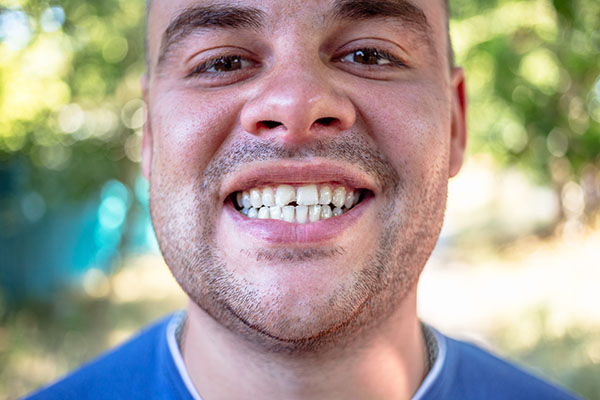Endodontist Omaha, NE
Many people have heard the term "endodontics" before but are unfamiliar with what exactly it means. Though general dentists can perform some endodontic services, an endodontist is a specialist with additional training to treat tooth pain, disease, and infection. Endodontists work together with general dentists to help manage tooth pain.
Endodontic services are available at Endodontic Specialists, PC and the surrounding area. If you are having problems with tooth pain or need a root canal, you may benefit from seeing an endodontist. Call us today at (402) 401-7777 to schedule an appointment or learn more about our services.
What Is an Endodontist?
According to WebMD, endodontists are dental specialists who focus on "tooth pain, disease, and infection." In addition to completing four years of dental school, they must complete two to three years of training in the field of endodontics. Endodontics deals with the dental pulp, which is the soft, center part of a tooth made up of blood vessels, cells, and connective tissue.
The tooth pulp may become infected or inflamed due to deep decay, traumatic injury, or repeated dental work on a tooth. At that point, an endodontist may perform a root canal, wherein they remove the tooth's nerve and damaged or infected pulp. If the tooth does not receive necessary treatment, the pulp will become inflamed and painful — and the tooth will eventually die.
“Endodontics deals with the dental pulp, which is the soft, center part of a tooth made up of blood vessels, cells, and connective tissue.”
The Difference Between an Endodontist and a General Dentist
All endodontists are dentists, but less than 3% of dentists are endodontists. As previously mentioned, endodontists are specialists with additional training in the field of endodontics. This additional training allows them to diagnose tooth pain and perform root canal treatments. For this reason, endodontists are also often known as specialists in saving teeth.
Endodontists can also perform much more complicated procedures and even surgically remove parts of the tooth when necessary. They typically also have more specialized tools and methods for performing root canals, utilizing more sophisticated forms of local anesthesia. Finally, since they perform more root canals than a general dentist, they have a better understanding of how to troubleshoot the procedures as needed.
“All endodontists are dentists, but less than three percent of dentists are endodontists.”
Common Endodontic Procedures
Endodontists most commonly treat infected tooth pulp with a treatment known as a root canal. According to the American Academy of Endodontists (AAE), the average endodontist performs 25 root canals a week. During this procedure, the endodontist uses specialized tools to identify and clean out the infected soft pulp from inside the tooth.
Endodontists can also save teeth through different procedures, such as endodontic retreatment and, when that is inadequate, endodontic surgery. Endodontists are also specially qualified to place dental implants and treat traumatic dental injuries.
“Endodontists most commonly treat infected tooth pulp with a treatment known as a root canal.”
Check out what others are saying about our dental services on Yelp: Endodontist in Omaha, NE
More Complex Endodontic Procedures
On top of root canals and endodontic retreatments, endodontists can perform more complex endodontic procedures to help save a tooth. These include an apicoectomy, which is a root-end resection that removes the infected or abscessed part of the tooth root. As stated earlier, endodontists also have the qualifications to treat traumatic dental injuries. They can also save teeth that have become cracked and place dental implants when it is impossible to save a natural tooth.
Those who do not receive the endodontic treatment they need may develop serious issues, such as pulp necrosis. Pulp necrosis is the death of the tooth's pulp and, if left untreated, can easily lead to other dental and general health problems. Those with pulp necrosis are at risk of fever, infection, and jaw swelling. There is also an association between pulp necrosis and abscesses, bone loss, cellulitis, periodontitis, and sinusitis.
“On top of root canals and endodontic retreatments, endodontists can perform more complex endodontic procedures to help save a tooth.”
Questions Answered on This Page
Q. How are endodontists different than dentists?
Q. What are some of the most common endodontic procedures?
Q. What are some more complex endodontic procedures?
Q. When should I go to an endodontist?
People Also Ask
Q. What can cause a tooth infection? What are the symptoms of a tooth infection?
Q. Why do endodontists perform root canals?
Q. What are the different types of tooth root fractures?
Q. What is the difference between a dentist and an endodontist?
When to See an Endodontist
A general dentist may refer a patient out to an endodontist if they have a problem with the inner tooth. It is critical for patients to follow up with such consultations, as they may require root canal therapy or more complex treatment. Many patients mistakenly believe that root canals will be painful. In reality, the procedure is hardly more discomforting than getting a cavity filled.
A general dentist may also refer a patient to an endodontist if they have severe tooth pain or a traumatic tooth injury. It is also possible for patients to require endodontic retreatment if an initial root canal treatment fails. It is crucial to take tooth pain seriously. The sooner it is treated, the higher the chances of saving the tooth.
“A general dentist may refer a patient out to an endodontist if they have a problem with the inner tooth.”
Frequently Asked Questions
Q. How long does it take to get a root canal treatment?
A. It depends on a case-by-case basis. While some patients can get their treatment completed within a 90-minute long appointment, others may require multiple visits. The complexity of the root canals and the patient's unique anatomy may play a factor.
Q. I am not experiencing any pain. Do I still need a root canal?
A. Yes. You should get treated even if you are not experiencing any symptoms, as infection can still spread to the rest of the body.
Q. How common are root canals?
A. Root canals are very common. According to the AAE, 15 million root canal treatments are performed annually.
Q. What if my tooth gets infected after I have already had a root canal treatment?
A. Teeth may occasionally heal improperly from an initial root canal procedure. They may also become reinfected due to external forces. A root canal retreatment, or endodontic retreatment, can help us attempt to save the tooth again.
Q. What should I do while my tooth is healing after root canal treatment?
A. The treated tooth will remain susceptible to fracture until the treated tooth has been restored. Consequently, you should avoid biting, chewing, or placing any pressure on the tooth. It is also vitally important to maintain a good oral hygiene routine: Brush at least twice daily, floss once nightly, and rinse with a fluoridated mouthwash. We will also need to schedule you for a follow-up restoration within the next month. At that point, we will then install a restoration to protect and cover the tooth.
Start Feeling Better – Visit Us Today
By visiting us as soon as possible, our team can help get you the professional treatment you need. Instead of waiting around and allowing the symptoms to get worse, we can provide you with treatment options.
Definitions
Call Us Today
An endodontist can make the difference between saving or losing your tooth. We at Endodontic Specialists, PC can help. Call us today at 402-401-7777 to schedule an appointment or learn more about our services.
Helpful Related Links
- American Association of Endodontists. Home Page. 2024
- American Society of Anesthesiologists. Local Anesthesia. 2024
- Cleveland Clinic. Pulp Necrosis. 2024
- Healthline. Apicoectomy: What to Know Before and After. 2024
- Johns Hopkins Medicine. Facial Trauma. 2024
- Mayo Clinic. Mayo Clinic. 2024
- ScienceDirect. Endodontic Surgery. 2024
- StatPearls. Dental Emergencies. 2024
About our business and website security
- Endodontic Specialists, PC was established in 1992.
- We accept the following payment methods: American Express, Cash, Check, Discover, MasterCard, and Visa
- We serve patients from the following counties: Douglas County and Dodge County
- We serve patients from the following cities: Omaha, Benson, Florence, Bellevue, Fort Calhoun, Richfield, LaPlatte, Cedar Creek, Plattsmouth, Fremont and Elkhorn
- Norton Safe Web. View Details
- Trend Micro Site Safety Center. View Details
Back to top of Endodontist










